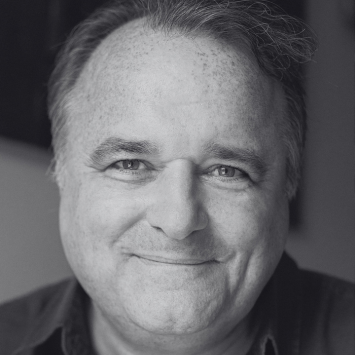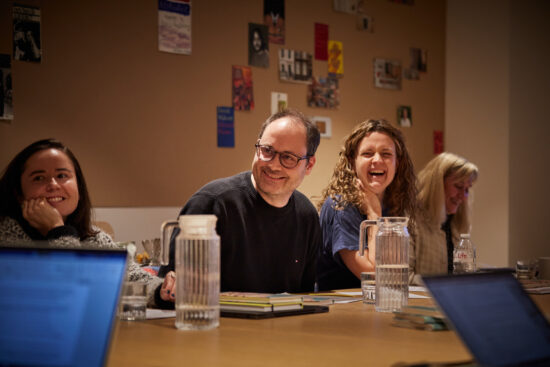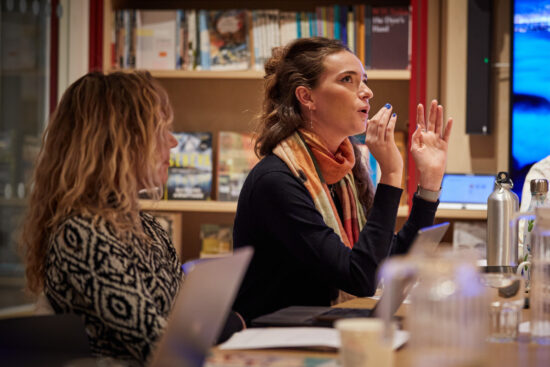How to Start Writing Comedy
6 minutes read
Paul Dornan, tutor on Faber Academy’s Funny Business: The Comedy Writing Room course, shares some tips on how to get started writing comedy.
Are you reading this thinking your searing state-of-the-nation novel or moving life-journey memoir needs a little more light and shade, the odd spark of witty dialogue or, heaven help us, maybe a few proper laughs?
Maybe you have even bigger comedic fish to fry and are thinking of writing the next ‘One Day’ or ‘Succession’? But where do you start? Where are those precious laughs going to come from, when it’s just you, an empty room and the blank page?
Well, let me tell you a little secret. One that, if you listen to it, think about it and act on it, will give you the most flying of starts into the strange, wonderful and daunting world of writing comedy. And the secret is this . . .
Comedy Begins At Home
I read somewhere recently that the very best way to find a lost dog in the woods is to stand in the place you last saw your furry friend, lay your coat down on the ground, park your bot-bot down on it, get out a nice book or a notepad and wait. The dog will eventually sniff the air, get a nose-full of those special Human Food Provider molecules and return to what she or he thinks of as home to find you.
It’s pretty much the same with comedy. There’s a vast, scary forest of genres, styles, languages, approaches and energies out there and nobody has a map. Somewhere in all those glades and thickets there’s a clearing with your coat laid out on the ground. All you have to do is raise your nose, sniff the air, follow the scent trail – your scent as it happens – and allow your talent and your inner voice to lead you to it.
This is the journey we take in our first week together in the Funny Business Writing Room. But before you get there, here are a couple of thoughts, well, challenges really, to get you heading in the right direction meanwhile.
Challenge 1: Find The Funny You Love
Yes. Love. Not quite like or feel you ought to love because it wins awards and that smart friend you quite fancy goes on about it all the time. We’re talking about YOU my friend and true, deep, abiding LOVE you might have for Bridget Jones, Schitt’s Creek or the joy you take from a couple of hours with the idiots in the Anchor Man newsroom. From warm character sitcoms to hard-edged satire, from pratfalls to icy irony, there’s something out there that is your funny, just as it’s your drama or your song. All you’ve got to do is be searingly honest with yourself, write it down and own it. Comedy is truth at any and all costs after all, and ‘cool’ and other people’s opinions have nothing to do with it. Find the Funny that’s YOU.
Once you’ve done making your ever-expanding list of your comic crushes, the real work begins. Re-read, re-watch or re-listen to various entries on it, perhaps starting at the top. Only this time round you’ll be doing so as a student and practitioner, rather than a mere punter. Put a pencil in your hand, a notepad before you and engage actively and consciously with the thing in question as a piece of work and creation, with questions on your mind. Like . . . how does this comedy work? What is its source of comic energy? What’s it really about beyond the hook or premise? How many ways do I love it? What part of my life or character does this story, these characters, this world-view excite, satisfy, express? Which bit of ME do I find in IT? What power could it bring to my writing if I got in touch with it?
Challenge 2: Find The Funny You Are
Everyone does Funny somehow, somewhere to someone. I do. You do. We all do. Whether it’s telling stories around the barbecue, doing silly accents to amuse your Mum around the family dinner table or making daft comments to a knowing few in the chat in an especially dull work zoom . . . it’s part of our lives to try to surprise, amuse and entertain our fellow humans.
That said, most of us are so used to ourselves that we take this part of our lives for granted and we aren’t truly aware of how, when and why we’re Funny.
That’s going to change. Because you’re practising comedy writing now and comedy doesn’t do un-aware. It does precisely the opposite. It listens, it watches, it questions, it stress-tests, it reworks, it pays attention.
And now this is what you must do, painful though it is. You might need to begin by asking people. Close friends. Selected family. Colleagues who find you amusing. Sit them down and ask them what they think you’re doing when you’re being – or trying to be – funny. Do they think you’re a one-liner person? Do they think of you as a story-teller, a wit, a play-leader with words? Do they get pulled in by your gift for creating characters or taking things off at an entertaining surreal tangent? Listen hard to what they tell you, and more than that . . . believe them. Because they are – or have been – your audience, and the audience, as any comedian will tell you, is never wrong.
Don’t just rely on others though. Start to pay attention yourself to what you do and say. The things that trigger you into a comic response. The things that don’t. Try and be mindful of your own comic behaviour – your instincts and your patterns, your triumphs and disasters – and try to be aware of how this fits with the discoveries you’ve made in Challenge 1.
A couple of tough things there, I know, but you’ll eat them up I’m sure. Comedy isn’t for the faint-hearted or lazy. It’s a lifelong journey. A project. An adventure. A mission. And it starts and ends with one thing: you. On your coat in the woods. Waiting for your voice and your talent to come and find you.

Paul Dornan has worked in the TV and film comedy world for over two decades as a writer, producer, director, teacher and mentor.
He teaches on Funny Business: The Comedy Writing Room which begins on 20 January 2025. In this week-long online course, you’ll find the wit, warmth and laughter in your writing. Covering screenplays, novels, memoir and everything in between, this five-day course will give you all the tools to kickstart your comedy project – or bring some levity to a more dramatic piece. Paul will be joined by bestselling author David Nicholls for a guest session on day three of the course.
Find out more about the course here.
End





